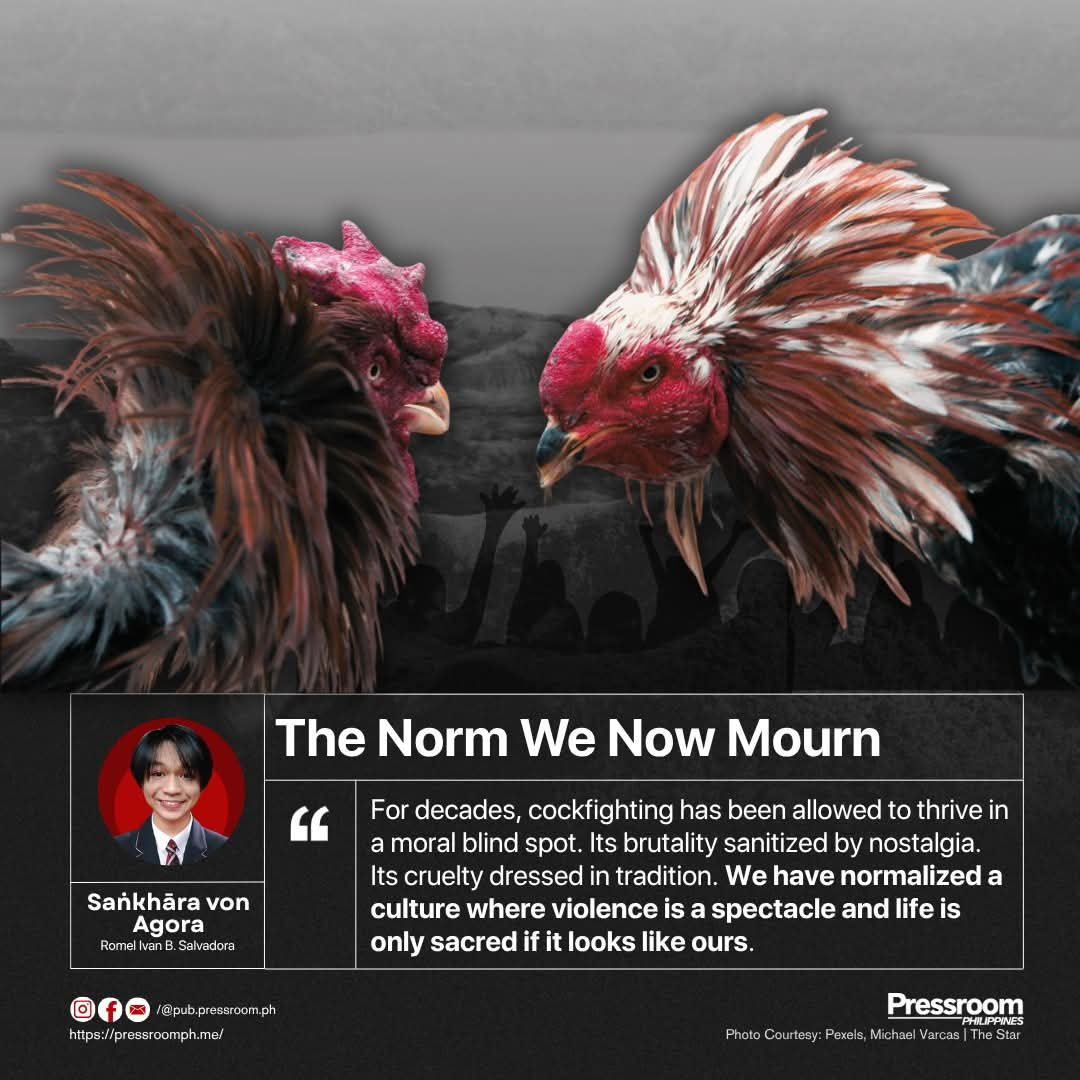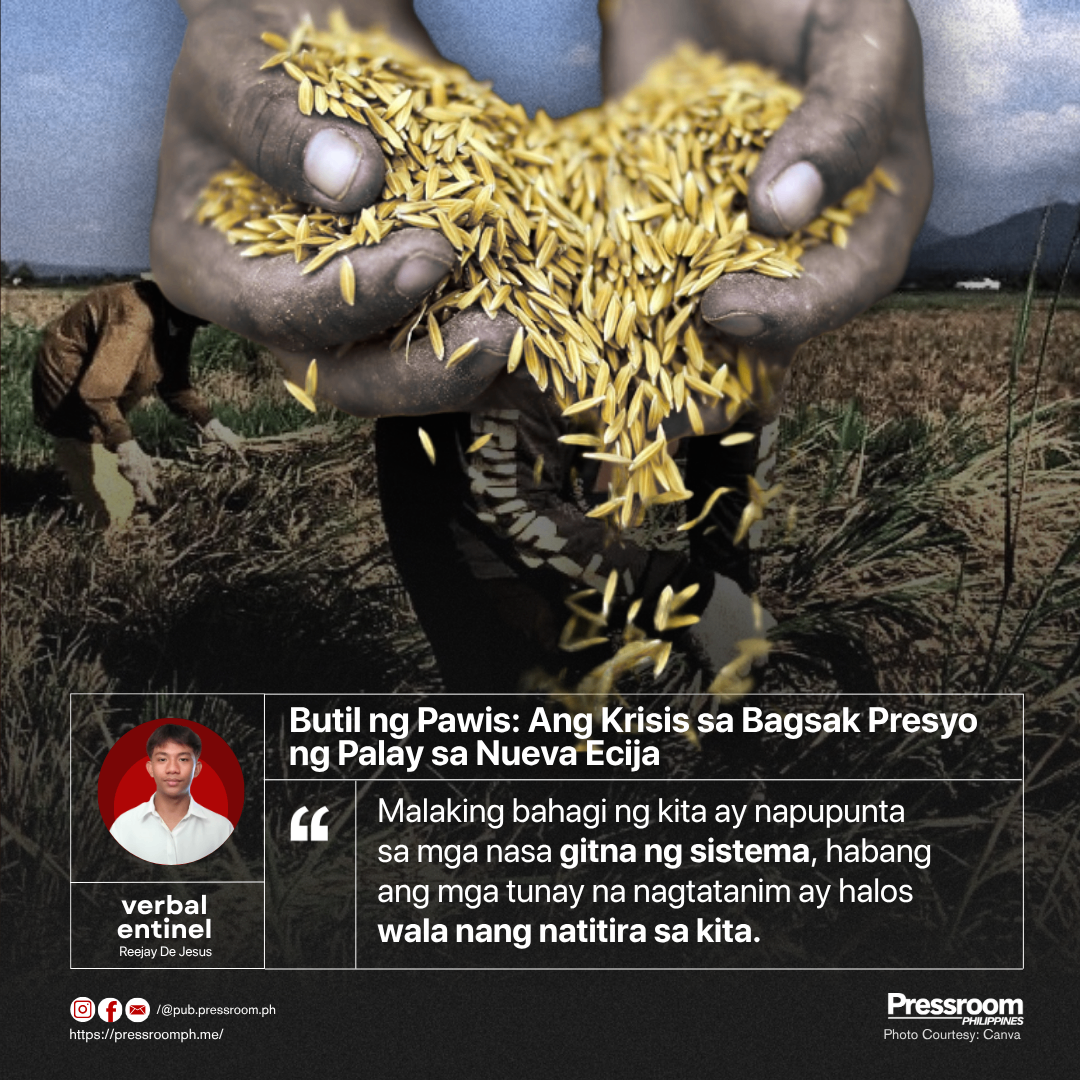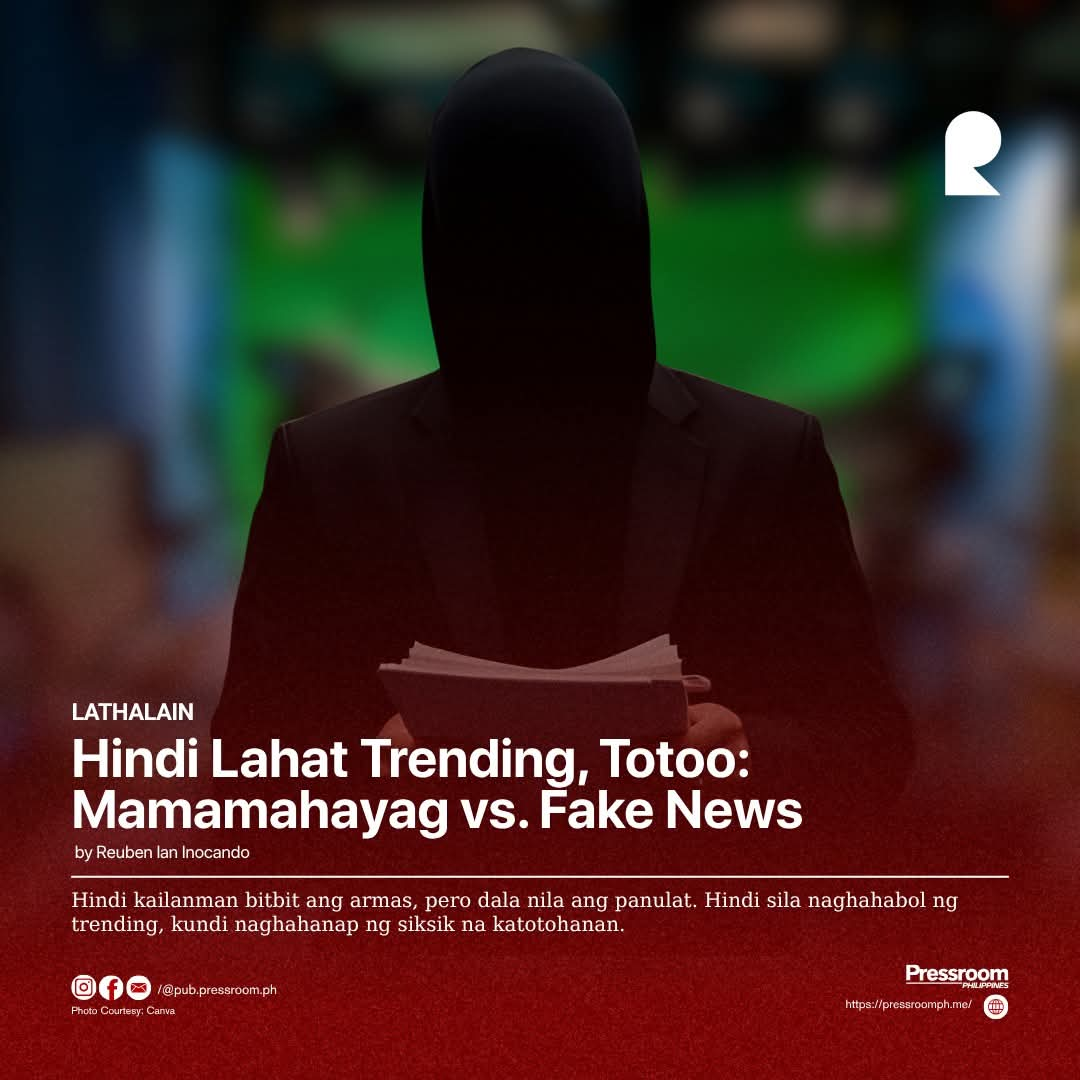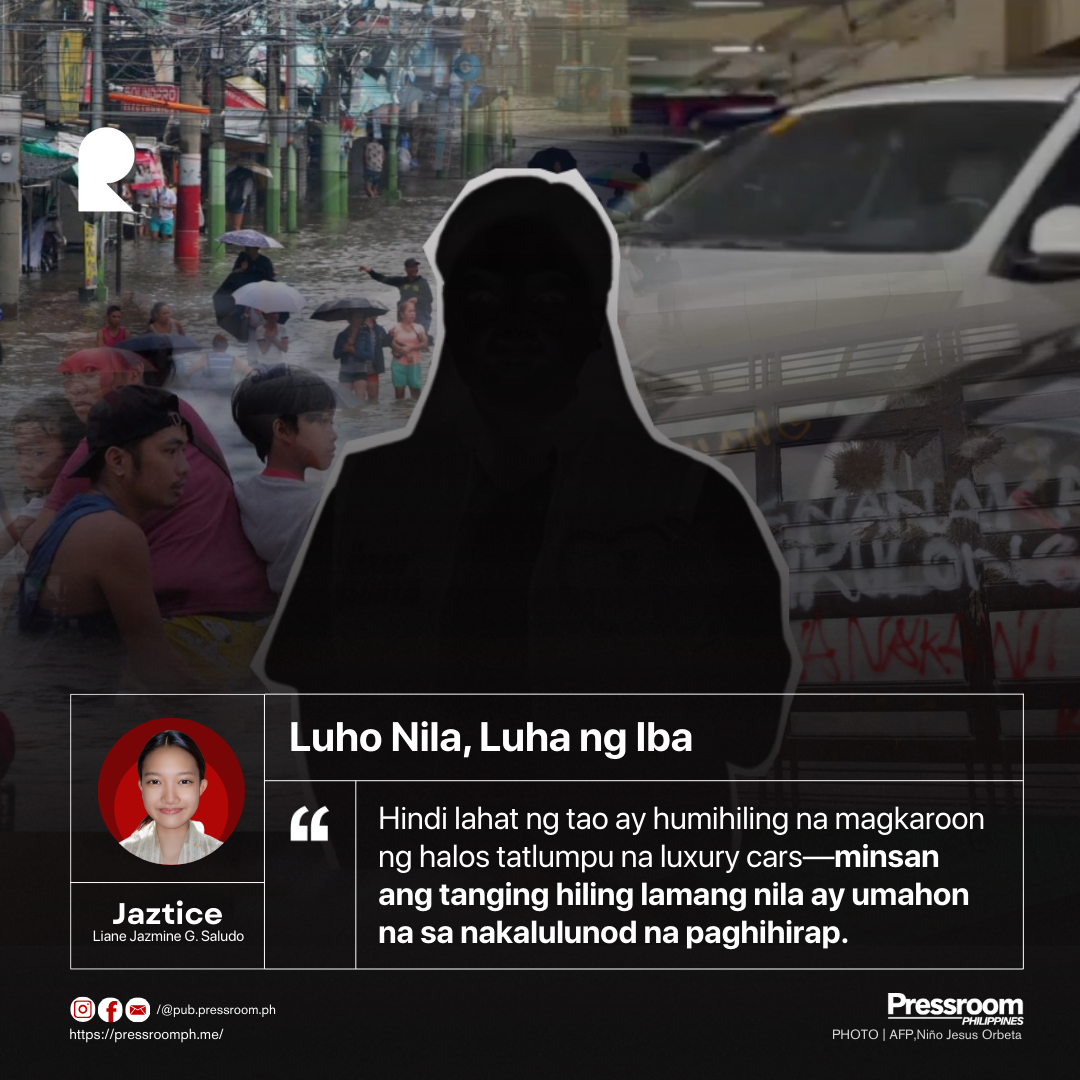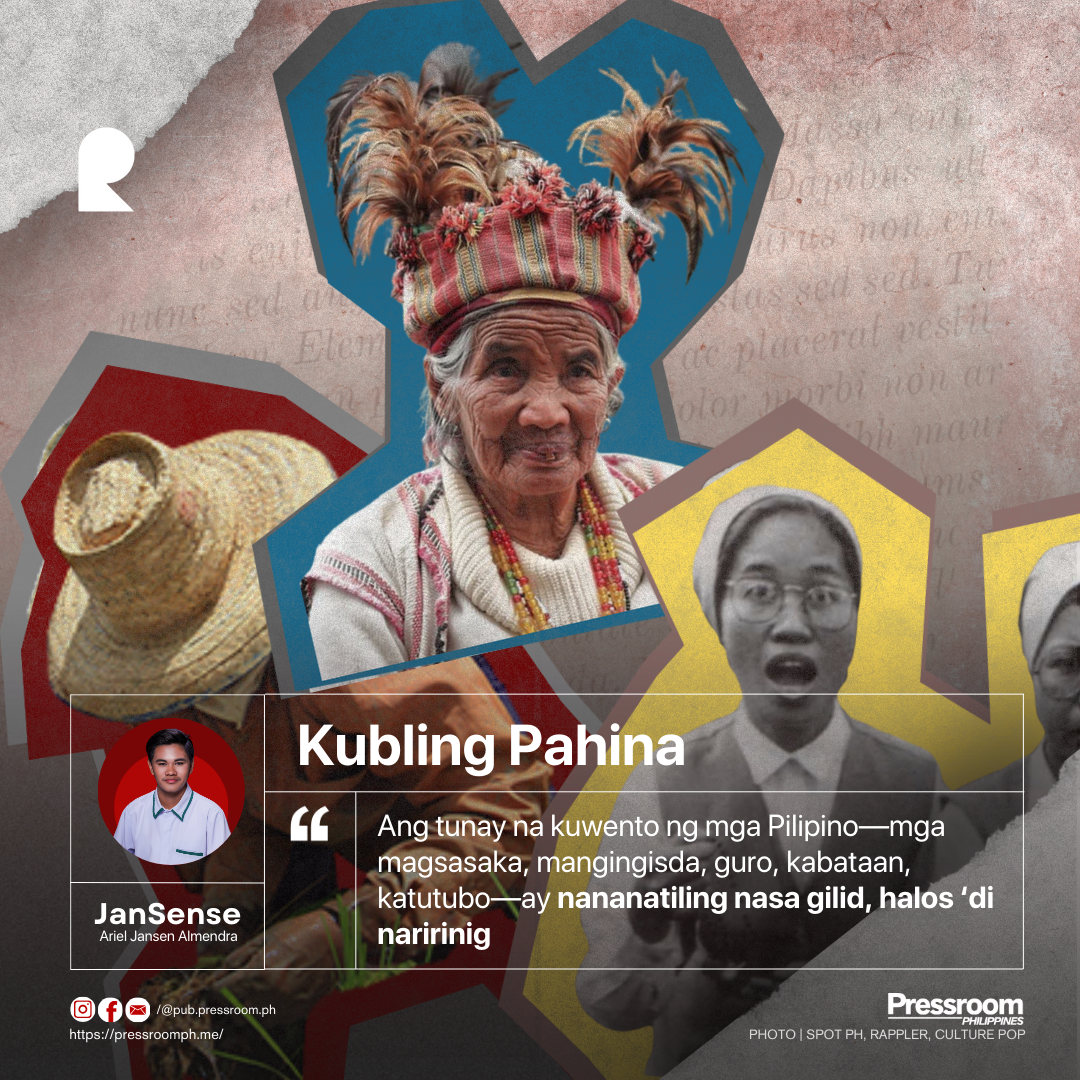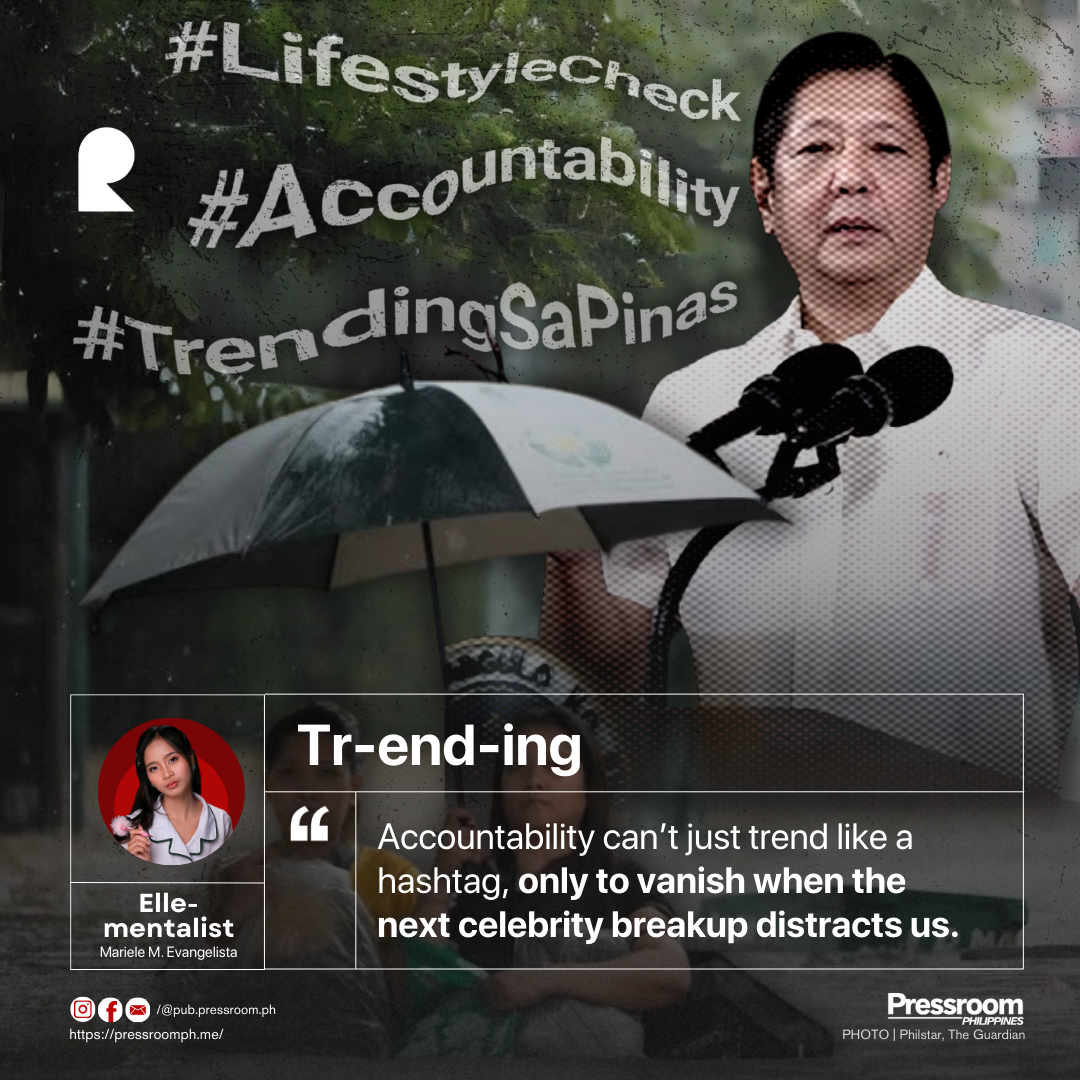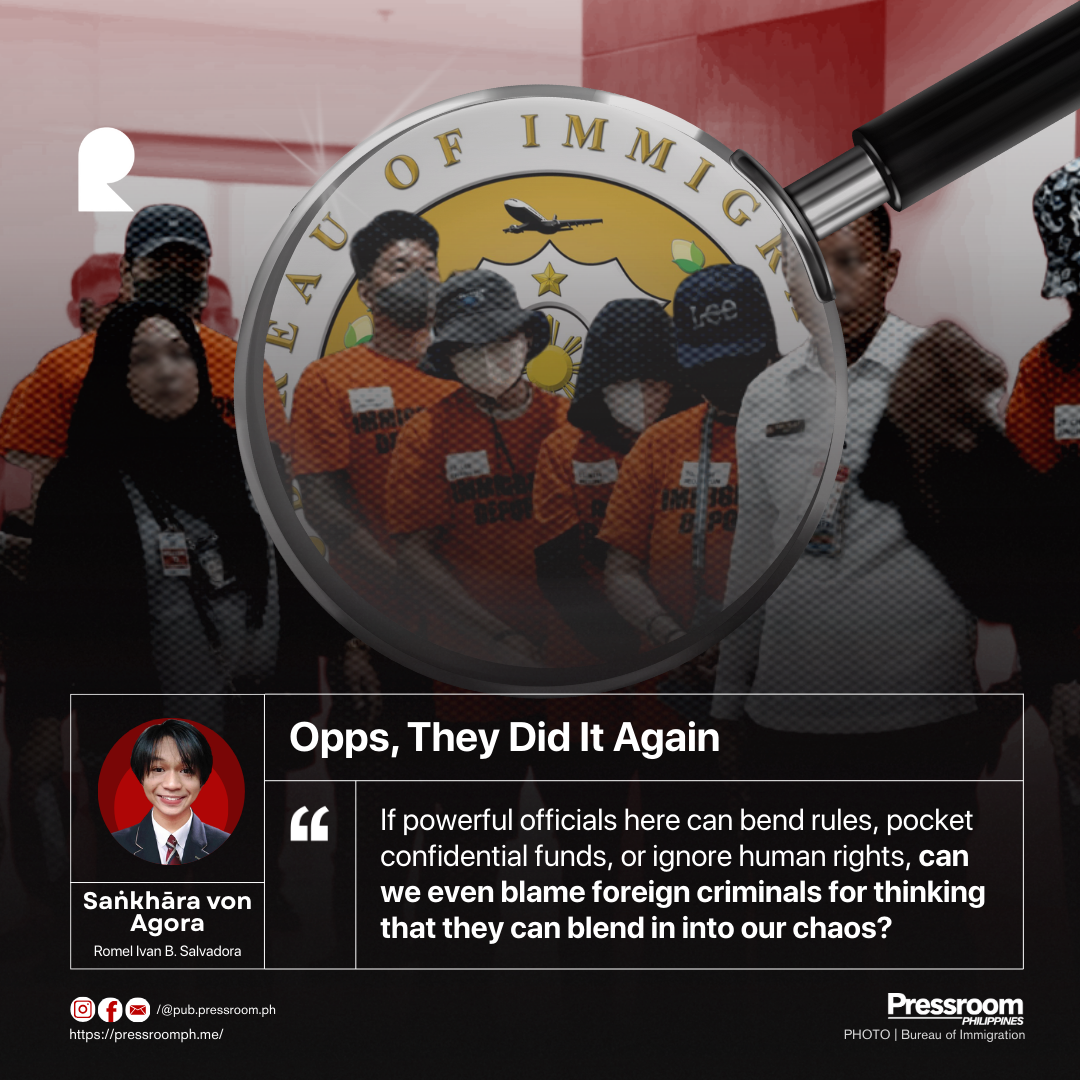𝘃𝗶𝗮 𝗥𝗼𝗺𝗲𝗹 𝗜𝘃𝗮𝗻 𝗕. 𝗦𝗮𝗹𝘃𝗮𝗱𝗼𝗿𝗮, 𝗣𝗿𝗲𝘀𝘀𝗿𝗼𝗼𝗺 𝗣𝗛
In the pit, a rooster falls. Bloodied, broken, to the sound of cheers. And no one mourns. The feathers settle. The betting slips exchange hands. The losing rooster is thrown out as it was ever only worth its strength. The winning one—injured and panting—is raised as a victor, at least until further notice. A tale as old as time—not even taboo, just routine. In many corners of our country, this is obviously just another Sunday.
Cockfighting, or sabong, has long been defended as tradition. It’s called a source of livelihood. A pillar of Filipino culture. An inherited pastime that pits the animals’ instincts in battle while men forget their conscience in a deliberate gamble. For every rooster that dies, another match begins.
And, just like that, the show went on, until … it didn’t. It stopped when the roosters weren’t the only ones disappearing from the pits anymore.
Between 2021 and 2022, 34 sabungeros vanished without a trace. Some were taken from cockpits, others from their homes. One even being abducted in front of his family by men posing as NBI agents. No warrant. No explanation. No return.
Surveillance footage recorded the abductions. Faces were visible. Plate numbers were clear. And still, nothing happened. For years, the cases stalled in bureaucracy. Officials pointed fingers. Families begged. But public outrage? Only ever a ripple back then.
Until June 2025 when whistleblower Julie Patidongan, under the alias “Totoy”, stepped forward. He claimed the missing sabungeros had been strangled, tortured, and dumped into Taal Lake inside sacks. Divers later recovered the sacks. Inside: potentially burnt human bones. Confirmation of what both the families and authorities have feared for so long.
Worse, Patidongan’s revelations didn’t stop at the once reported 34. According to him, almost 100 people connected to the cockfighting world had been killed. Their lives discarded like the animals they once worked with. Silenced, erased, and buried.
It wasn’t until when human bones were discovered in sacks at the bottom of the lake that public outrage finally ignited. Now, headlines cry injustice. People grieve. Investigations stir.
But where was that urgency when lives were still just feathers?
Only when men turned up dead did the country flinch. When it was animals bleeding, we called it sport. But when those bodies became human, we called it tragedy. Only when feathers were replaced by flesh did we start to care.
That is the uncomfortable truth. We ignored the violence until it reached us. We tolerated cruelty until it outgrew its cage.
This isn’t just about the deaths. It’s about what led us here. For decades, cockfighting has been allowed to thrive in a moral blind spot. Its brutality sanitized by nostalgia. Its cruelty dressed in tradition. We have normalized a culture where violence is a spectacle and life is only sacred if it looks like ours.
We taught generations to cheer for blood. Till the blood spilling was now ours.
Ironic, isn’t it, how it took fellow men to die before we finally called this a moral disaster?
It’s easy to frame this story as a crime thriller: missing persons, murder-for-hire, political conspiracy. But we must ask deeper questions. What kind of culture allowed this? What values did we uphold when we chose to protect the “game” but not the lives trapped within it? This was never just about betting. It was about belief—our belief that some lives are worth less than others.
This is the consequence of normalizing cruelty. When we treated aggression as entertainment, we were not prepared when that became the very snuff we failed to see when it still wasn’t human.
Violence, once justified, does not stay in place. It spreads. It adapts. It waits.
The roosters were never just animals. They were messengers. Every fight they were forced into was a reflection of how we see power, violence, and worth. We praised those roosters when we met and followed their orders. We deemed them worthless when they couldn’t fulfill us anymore. And now, we’re repeating that pattern with people.
This is not just the tragedy of the sabungeros. This is the tragedy of a country that allowed pain to become a pastime. That turned a blind eye when animals died, and acted only when human remains became the new scraps in slaughterhouses.
Maybe it was never a game. Maybe it was always a warning we refused to hear.
We mourn the men now. We demand justice, as we should. But if justice is only awakened by human death, and not by systemic cruelty, then it is incomplete. Because what this tragedy reveals is not just the failure of our institutions—but the failure of our conscience.
The entertainment we defended became a tragedy we didn’t expect. And now, that tragedy has become our reality.
One for the money, two for the show. We couldn’t face the reality, ‘till we watched lives go.
